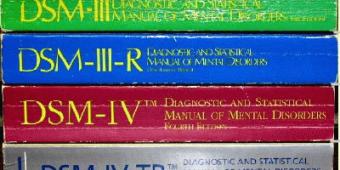DSM-5: Changes in the Diagnostic and Statistical Manual
In the December 4, 2012 edition of the Psychiatric Times blog, psychiatrist Allen Frances, M.D., reports that the American Psychiatric Association has given its final approval to the new DSM-5. Dr. Frances argues that, as it currently exists, the new Diagnostic and Statistical Manual -- the book psychiatrists and psychologists use to pinpoint specific diagnoses -- is deeply flawed and scientificully unsound in some of its new descriptive symptoms.
Controversy most often exists for new diagnostic categories and in areas lacking definitive research. Social anxiety disorder fits neither of these categories. Research on the subject has been abundant and clear.
How is this relevant to social anxiety disorder?
We have always felt that the current DSM-IV-TR definition of social anxiety disorder is the best description to appear in the official diagnostic book. However, that does not mean we feel everything is worded precisely, or that a better definition cannot be written.
We want the DSM-5 to give an accurate portrayal, clearly definable symptoms, and a way for general practitioners to see the clear-cut differences between the existing anxiety disorders. For example, panic disorder and social anxiety disorder are many times confused. These two anxiety disorders are very different from each other, and there is a clear-cut distinction that should be observable not only to professionals, but to the general public as well. This specific distinction (between panic and social anxiety) is covered in an article on the Social Anxiety Institute site.
The diagnostic definition should not be too broad, either. Just because a person is shy or quiet does not mean that they have a diagnosable case of social anxiety disorder. A large body of empirical evidence attests to the underreporting of social anxiety disorder. It is very important that the diagnostic description of this disorder is accurate.
Millions of people suffer with social anxiety disorder that have never been diagnosed, and they need immediate help.
In his article, Dr. Frances points out several other pitfalls of poor diagnoses. One of these is the overmedication of prescription drugs.
We have pointed out that the DSM-IV-TR definition of social anxiety disorder needs to be changed -- in future editions -- in some very specific ways. That article is the next one on this website. You can go directly to this page here.



